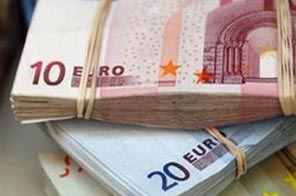Iceland agonises over compensation deal
REYKJAVIK: Iceland's government is battling to convince lawmakers to approve a deal to pay back billions of euros to the British and Dutch governments in a row which threatens its bid to join the EU.
After London and The Hague compensated hundreds of thousands of British and Dutch savers who lost money in the collapse of the online bank Icesave, Reykjavik reached an agreement in June under which Iceland would repay 3.8 billion euros to Britain and the Netherlands by 2023.
The Icelandic parliament, the Althing, has to give its green light for the deal to go through, but amid heated debate the government may struggle to obtain the majority needed.
The accord is highly unpopular among the public and several members of the left-wing majority have threatened to side with the opposition to thwart the deal.
"I think it is pretty clear that this will not be accepted unchanged, without clear reservations," Gudfridur Lilja Gretarsdottir, a member of the Left Greens party, the junior partner in the government coalition headed by the Social Democrats, told AFP recently.
No date has been set for parliament's vote, but it could be held late this week or early next week.
Prime Minister Johanna Sigurdardottir and her government recently went all out to clinch parliament's approval of Iceland's European Union membership application.
But The Hague has threatened to complicate Reykjavik's EU bid if the Icesave problem is not quickly resolved.
"A solution to the problem of Icesave would encourage rapid consideration of Iceland's bid to join the European Union," Dutch Foreign Minister Maxime Verhagen told his Icelandic counterpart Oessur Skarphedinsson on July 21.
"It would show that Iceland takes European directives seriously," he added.
But Skarphedinsson insisted the two issues were not linked.
"Icesave and the EU application are not in any way connected. Icesave is a dispute with the two countries, Britain and the Netherlands, but not with the EU," he told AFP.
Icesave, a subsidiary of the Landsbanki bank that was nationalised in October 2008, had attracted more than 320,000 British and Dutch savers owing to the high interest rates offered in Iceland.
But they lost their savings when their accounts were frozen in connection with Landsbanki's nationalisation. London and The Hague partially compensated them before turning to Reykjavik, which led to a lengthy row that was only resolved in June.
But now lawmakers are under public pressure, with a Capacent Gallup poll published last week showing that 67.9 percent of Icelanders are against the refund scheme, and only 19.6 percent support it.
"It should be flatly rejected," said Brynjar Elinarson, a thirtysomething Reykjavik resident.
Bjorg Gudmundsdottir, a woman in her 40s, agreed. "We can't repay all these debts."
With its 319,000 inhabitants, the repayment plan represents about 12,000 euros per Icelandic citizen, or about 40 percent of Iceland's annual gross domestic product (GDP).
And that doesn't take into account the annual interest of 5.5 percent agreed in the deal with London and The Hague.
"Icelanders will be doomed to poverty for the next 20 years," said opposition leader Hoskuldur Thorhallsson of the Progressive Party.
The Icesave dispute has already prompted the International Monetary Fund to delay payment of the second installment of a loan to the crisis-stricken country.
And a resolution remains a key criteria for payment of a 2.5-billion-dollar (1.77 billion euros) loan pledged by Iceland's Nordic neighbours.
According to a report published by Iceland's central bank in July -- considered too optimistic by the opposition -- the Icesave repayment scheme will cost Iceland 1.2 percent of its GDP annually over the course of 15 years.






